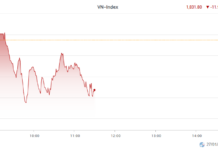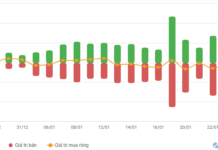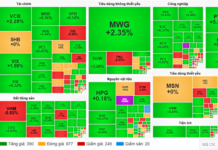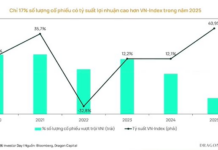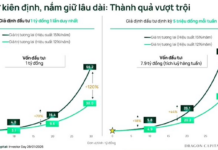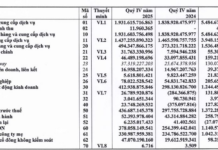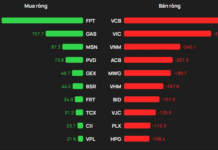The Rise of Online Shopping: A Race to the Cheapest Deals
With the evolution of e-commerce, an increasing number of consumers are turning to online shopping platforms for their purchases, particularly when it comes to affordable goods from overseas. Mr. Tiến Xuân from Hanoi shared his experience, stating that for the past three years, he has been buying household items such as phone cases and rechargeable fans exclusively from online marketplaces.
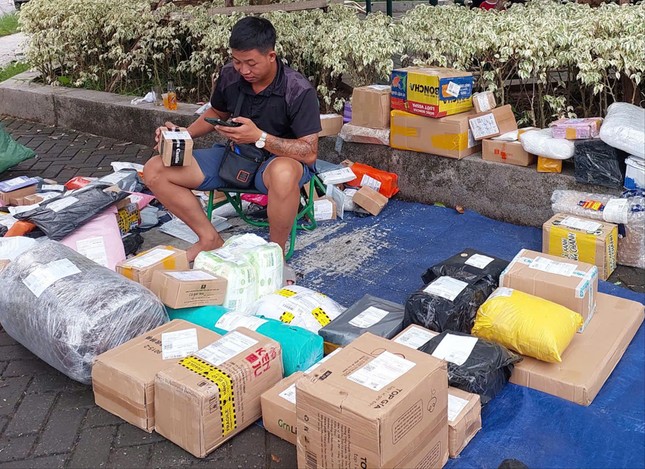
Consumers are embracing the convenience of online shopping, receiving their orders swiftly. (Pictured: A delivery person from an online marketplace handing over a package to a customer)
Mr. Xuân added, “Since most of the products sold in physical stores are labeled as made in China, I opt for online platforms where I can find similar quality items at significantly lower prices. For instance, screen protectors and phone cases that typically cost 50,000-100,000 VND in stores can be purchased for a third of the price online. It’s a great way for consumers to save money.”
Ms. Nguyễn Hương, a resident of Hoang Mai, Hanoi, is another avid online shopper. She frequently purchases a wide range of items, including clothing, backpacks, and footwear, with each product costing around 100,000-200,000 VND. In addition to personal use, Ms. Hương also resells some of her purchases to friends and family. On average, she places orders for 150-200 household items per month, most of which are delivered directly to her home, and all fall below the 1 million VND mark.
“I can get a pair of sandals for 150,000-170,000 VND, and a set of loungewear for 150,000-200,000 VND. Many of my colleagues are also keen on buying these items. The prices are much lower compared to similar products sold in stores or by domestic brands,” shared Ms. Hương.
This shift in consumer behavior has led to a significant increase in the number of low-value items being purchased online. According to estimates from shipping companies, approximately 4-5 million orders for goods valued at less than 1 million VND are shipped from China to Vietnam daily through popular platforms such as Shopee, Lazada, Tiki, and TikTok.
Leveling the Playing Field for Domestic Producers
Mr. Đặng Ngọc Minh, Deputy Director General of the General Department of Taxation, explained that the VAT exemption on small-value imports is in line with the Kyoto Convention on the Simplification and Harmonization of Customs Procedures, which Vietnam has signed. He noted that while some countries have recently introduced changes to their regulations regarding taxation of such imports, Vietnam’s policies are subject to decisions made by the Government and National Assembly.
According to the 2023 E-commerce White Paper, the number of online shoppers in Vietnam has reached 61 million, marking a 7.02% increase from the previous year. Each shopper spends approximately 336 USD per year on online purchases.
Ms. Nguyễn Thị Cúc, Chairman of the Vietnam Tax Consultants’ Association, pointed out that the current policy of exempting goods valued at 1 million VND or less from VAT and import tax has led to a flood of low-value imports into the Vietnamese market. She warned that some sellers might be exploiting this tax exemption by splitting orders into smaller values to avoid paying taxes, resulting in potential revenue losses for the government.
“When imported goods valued at less than 1 million VND are exempt from VAT and import tax, they become cheaper than domestically produced goods, which is unfair to local producers and detrimental to consumers. Therefore, I propose that this tax exemption be eliminated for low-value imports to ensure a level playing field for domestic products and prevent tax losses,” suggested Ms. Cúc.
Mr. Nguyễn Văn Được, a tax expert, shared a similar view, arguing that it is unfair for domestic producers to pay VAT while imported goods through express delivery are exempt. He recommended revising the policy to remove the tax exemption for imports valued below 1 million VND to foster a fair competitive environment for all players in the market.
Saigon Co.op ventures into TikTok for AI-powered sales.
To meet the shopping demands for Tet (Vietnamese Lunar New Year) among the general population, particularly the customer base of Generation Z (young individuals aged 20 and above), Saigon Co.op has officially introduced its sales on TikTok starting from January 25th, 2024.
Lucky Shipper Wins Big During Lunar New Year
In the days leading up to Tet holiday, the amount of online shopping has significantly increased, with delivery personnel being busy on every route in Hanoi. According to an e-commerce expert, online shopping during this Tet holiday has seen a remarkable surge and is expected to continue rising in the coming period.


